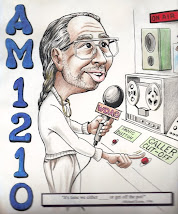Detroit Automakers' Rescue Stalls in Senate
Thursday , November 20, 2008
WASHINGTON —
A plan to give troubled U.S. automakers billions of dollars in government-backed loans is on life support, leaving the fate of hundreds of thousands of workers and Detroit's once-venerable car companies hanging in the balance.
Senate Majority Leader Harry Reid canceled plans Wednesday for a vote on a bill to carve $25 billion in new auto industry loans out of the $700 billion Wall Street rescue fund. The Bush administration and congressional Republicans have rejected Democrats' plan to dip into that pot of money.
Warning of economic disaster, a bipartisan group of senators from auto industry states are trying to reach a deal on an alternative package. If an agreement can be reached, Reid said the Senate still could vote on it as part of a measure to extend jobless benefits.
But Reid acknowledged that was "not going to be easy."
With all sides sensing doom for a Big Three automaker rescue, the fingerpointing began. White House press secretary Dana Perino said that if Congress "leaves for a two-month vacation without having addressed this important issue ... then the Congress will bear responsibility for anything that happens."
Congressional Democrats countered that the Treasury Department already had the power to grant emergency funds to the automakers, but the Bush administration opposed the approach.
The leaders of General Motors Corp., Ford Motor Co. and Chrysler LLC painted a grim picture of their financial position during two days of congressional hearings, warning that the collapse of the auto industry could lead to the loss of 3 million jobs. Detroit's automakers, hurt by a sharp drop in sales and a nearly-frozen credit market, burned through nearly $18 billion in cash reserves during the last quarter, and GM and Chrysler both said they could collapse in weeks.
"I don't believe we have the luxury of a lot of time," GM CEO Rick Wagoner told a House hearing.
Alan Mulally, the CEO of Ford Motor Co., said the company had sufficient cash reserves to make it through 2009. But United Auto Workers union president Ron Gettelfinger said a bankruptcy could spawn others.
"If there's a Chapter 11 (for) one of the companies, it will drag at least one other with them, if not all of them. And I do not believe Chapter 11 is where it will end. It will go to liquidation," he said ominously.
Automakers ran into more resistance from House lawmakers, who chastised the executives for fighting tougher fuel-efficiency standards in the past and questioned their use of private jets while at the same time seeking government handouts.
"My fear is that you're going to take this money and continue the same stupid decisions you've made for 25 years," said Rep. Michael Capuano, a Massachusetts Democrat.
The stakes are high. The Detroit automakers employ nearly a quarter-million workers, and more than 730,000 other workers produce materials and parts that go into cars. About 1 million on top of that work in dealerships nationwide. If just one of the automakers declared bankruptcy, some estimates put U.S. job losses next year as high as 2.5 million.
The White House and congressional Republicans have called on Democrats to support a Republican plan to divert a $25 billion loan program created by Congress in September -- designed to help the companies develop more fuel-efficient vehicles -- to meet the auto giants' immediate financial needs.
Sen. Carl Levin, a Michigan Democrat, along with Republican Sens. Kit Bond of Missouri and George Voinovich of Ohio are trying to broker an alternative that could provide bridge loans or a guarantee that the fuel-efficiency loan fund ultimately would be replenished. Negotiators were discussing a scaled-down aid package of $5 billion to $8 billion to help the automakers survive through year's end.
But it was unclear whether any progress could be made. Democrats strongly oppose letting the car companies tap into the energy loans for short-term cash-flow needs.
Despite the gridlock in Congress, there could be a contingency plan: a return to Washington in December for another postelection session to try to strike a deal.
House Majority Leader Steny Hoyer noted that Democratic leaders were planning to gather for an economic conference the week of Dec. 8. "That is available," Hoyer said. "The year has not ended."






No comments:
Post a Comment